Gaming to Learn New Languages
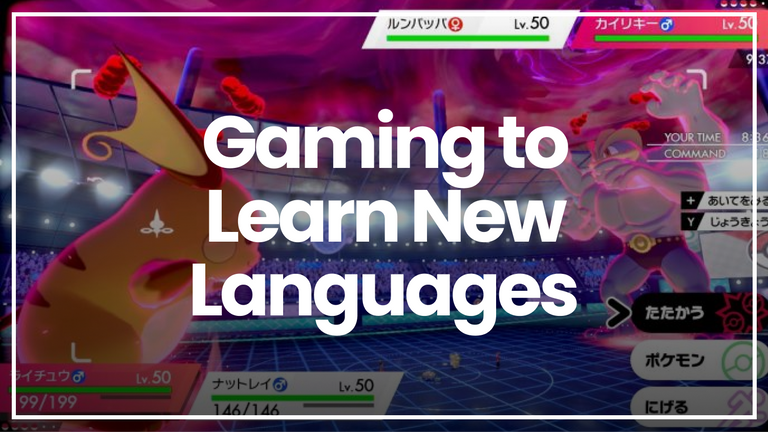
Do you remember what it was like to play games as a kid before you learned how to read? You probably fumbled with the menus and character dialogue, but still enjoyed the game from start to end because of all the visual and auditory clues that the game gave you. At the same time, your reading ability improved as you figured out how to understand the game's objectives. When learning a new language, gaming can help boost literary skills by a great amount all while you're enjoying the gameplay. In this post, I'll share with you how you might be able to leverage gaming as a means to boost your language learning if you're trying to learn a new language. Let's dive right in!

Playing a Game In a Foreign Language
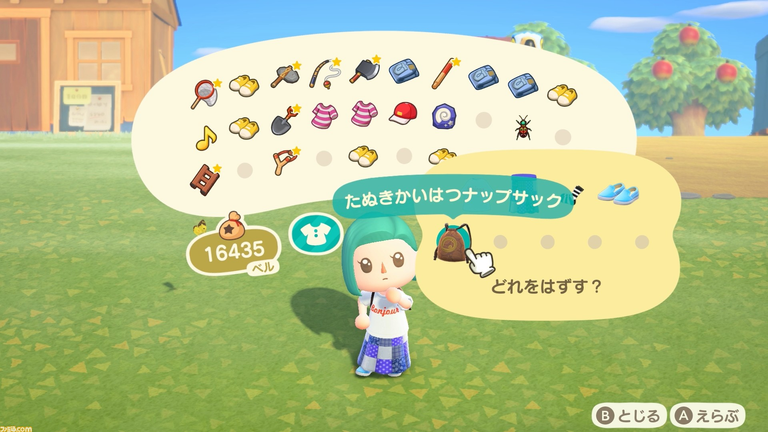
A significant amount of text in a game contains instructions for you to proceed in the game. "Go to this town.", "Fight 30 Slimes", "Collect 300 pieces of firewood" - these are all things that the game tells you in order for you to progress through the game. Even if you don't understand these objectives the first time, you can fumble around in the game until you eventually hit the objective to figure out that that was the objective all along. The game will also often have visual and auditory clues that should help you to achieve the objective.
Simultaneously, games often have a core gameplay loop where things are largely the same. The objectives to progress through the game are similar, and once you figure it out once, you only need to find out what differences there are between each objective to progress.
When playing a game in a foreign language, the combination of auditory and visual clues, together with the fact that objectives stay largely the same for many games, means that it often doesn't take that long for someone who doesn't understand all the text to be able to play and enjoy the game. Through this experience, you'll also be able to naturally learn words in the menus and dialogue that have been repeated many times to you.
For example, in the screenshot above, let's assume that you don't understand any of the text on the screen and have somehow fumbled yourself into this menu. If you select the backpack, you'll see your character do a little twirl and somehow - the backpack is gone! You repeat it again, this time with the blue shoes and your character now removes them. At this point, you can already tell that the text in the screenshot means something along the lines of "Select an item to take off" - and you'd be right!
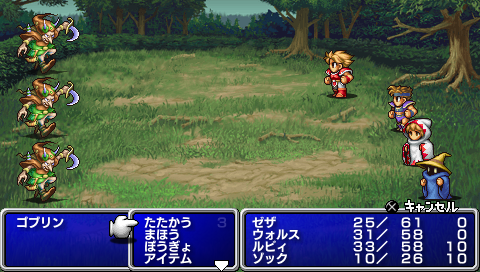
Let's take another example, Final Fantasy. In the battle screen, you see that you only have a few options to choose from, and if you choose the first option, you'll then have to select an enemy character. After which, your character will attack that character with a sword. It doesn't take too much effort to figure out that たたかう means Attack. Similarly, when you fiddle around with the other menu options, the visual clues on the screen will let you know what you're doing.

Story-Based Games, or Visual Novels (mostly for Japanese)
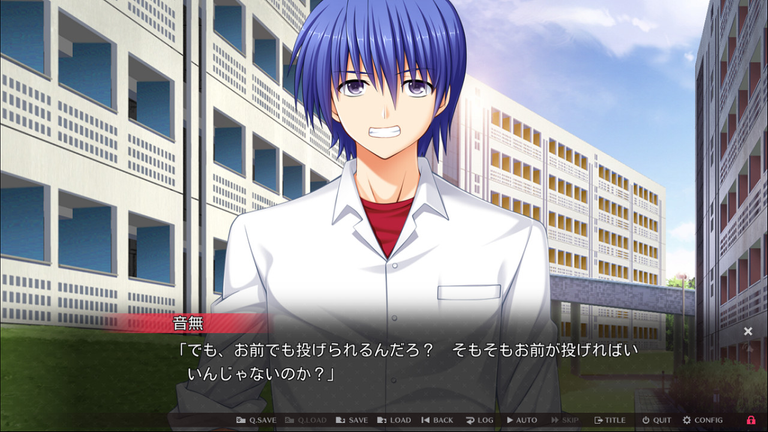
I attribute much of my Japanese reading ability to how much I played visual novels in the past, which can be thought of as simply interactive stories with branching paths. Although visual novels are aplenty in the Japanese language, the same cannot be said for other languages. The reason why this method is better than just reading a book is that many of these games come with fully-voiced text which can improve both your reading and listening at the same time. Furthermore, the voice tones, background context, amongst other things can help clue you in on what's going on in the scene.
Even though there aren't many visual novels in other languages, games with a heavy emphasis on the storyline can be said to have similar characteristics as visual novels. As the story progresses, you'll naturally pick up words that have appeared repeatedly thanks to the visual and auditory clues that the game provides.

You Don't Need to Fully Understand the Games to Enjoy Them
If you wait until you can fully understand a game in a foreign language to play it, you'll never get around to it. In my opinion, the most important thing about gaming in a foreign language is whether you enjoy playing it. I found myself enjoying many of the games that I played in Japanese even if I understood only 50% of it, so I continued on. As explained above, gaming is pretty generous when it comes to clueing you in on how to progress, so full comprehension isn't needed. Even if I mess up, it's only a game and I can restart at any time.
Just like how you wouldn't play unenjoyable games in your native language, you shouldn't play a game in a foreign language just because the text is simpler, or is a game that is aimed at kids. It's not fun and you'll come to dread playing the game. If Animal Crossing or Pokemon isn't your jam, there are plenty of other games out there that should still be enjoyable for you - choose those instead.
Of course, before playing a game in a foreign language, you should minimally know how to read the language, as well as know some basic grammatical rules. These can help bootstrap the learning process, although it is also entirely optional if you are willing to spend copious amounts of time fumbling and fiddling through all the menus with a notebook. (I'm not too sure of the efficacy of this method though.)

Finding Games in a Different Language
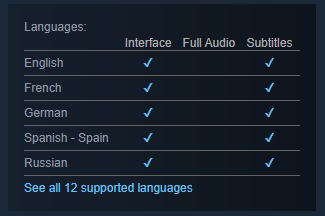
With Steam, finding games that support your target language has never been simpler. Every store listing has a language support section where you can see if the game supports whatever language you are learning.
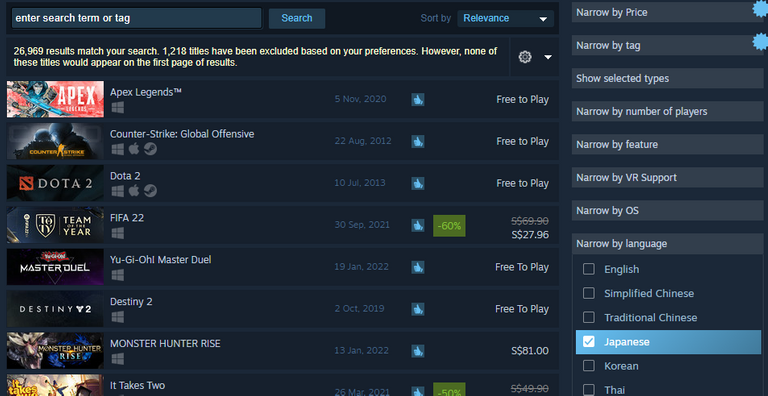
You can even search games by whether your language is supported.
One thing to take note of when finding foreign-language games is that you should try to figure out whether the game is professionally translated or not, or if the language that you are playing in is the game's native language. For AAA games, the translations are most likely professionally done and there won't likely be any issues. For smaller indie developers, language support can be very shoddily done as "minimal support" with machine-assisted translation rather than real human translation. This leads to unnatural text and can impede your learning. Pick games that have professional translations or have your target language as its native language for a better learning experience.

I hope you enjoyed reading this little guide on how to boost your foreign language learning by playing games! If you have any experience learning a language via playing games, I'd like to know - leave a comment down below!
Post Header image source: Automaton
Congratulations @kephler! You have completed the following achievement on the Hive blockchain and have been rewarded with new badge(s):
Your next target is to reach 70 posts.
Your next payout target is 2000 HP.
The unit is Hive Power equivalent because your rewards can be split into HP and HBD
You can view your badges on your board and compare yourself to others in the Ranking
If you no longer want to receive notifications, reply to this comment with the word
STOPTo support your work, I also upvoted your post!
Check out the last post from @hivebuzz: